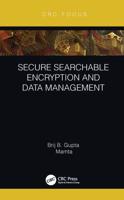Publisher's Synopsis
With the Navy's focus on efficient energy consumption, Naval Facilities Engineering Command deployed its own Smart Grid in 2019, allowing shore commands to modernize and meet energy consumption mandates set in place by the Secretary of the Navy. With the addition of new 'smart' technology comes additional risks in the form of cyber-attacks. This thesis implements a Bayesian classification and machine learning algorithm that explores how the data set, size of training data and number of features affect classification accuracy. Our experiment was performed using seven data sets, developed through the University of Montreal using a SCADA sandbox similar to that of the Navy Smart Grid. Three data sets contained nominal data, and four data sets contained malicious cyber-attacks. Our experiments, performed using MATLAB, showed that malicious packet distribution within the data set and size of the training data greatly affected classification accuracy. This thesis demonstrates machine learning operability for use in the Smart Grid environment and will provide data points to further research for Network Intrusion Detection Systems (NIDS).












